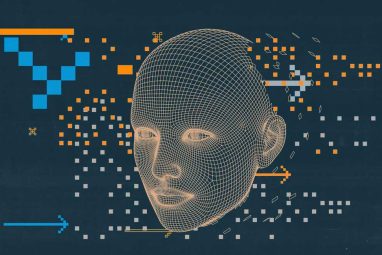This is How Organizations Can Implement Ethical Practices in the Age of AI
Latest research highlights the critical importance of performing privacy impact assessments for AI technologies to address privacy risks.
Topics
News
- Ooredoo Launches Sovereign AI Cloud in Qatar Powered by Nvidia GPUs
- Dubai Future Foundation and WEF Release Top 10 Emerging Technologies of 2025
- Deloitte and AWS Forge $1 Billion Alliance to Accelerate Digital Transformation in the Middle East
- Over 40% of Agentic AI Projects Expected to Fail by 2027, Report Finds
- Guardian AI Agents Poised to Take 15% of Agentic AI Market by 2030, Gartner Says
- Deloitte Rolls Out Global Agentic Network to Accelerate AI Adoption in the Middle East

[Image source: Krishna Prasad/MITSMR Middle East]
As more and more organizations leverage artificial intelligence (AI) to transform operations — driving personalized recommendations and making autonomous decisions, privacy concerns have surged.
AI’s reliance on extensive data analysis, often containing personal information, presents a complex ethical and operational challenge amid evolving data privacy laws.
In response to this pressing issue, Info-Tech Research Group’s latest research, Conduct an AI Privacy Risk Assessment, aims to help IT leaders prepare their AI projects for success with a privacy impact assessment (PIA).
Integrating comprehensive PIAs offers organizations a structured approach to evaluating potential privacy risks, ensuring informed consent, and limiting data collection. This recommended approach fosters responsible AI adoption and addresses the evolving privacy concerns surrounding AI technologies.
The newly published blueprint highlights organizations’ challenges in balancing innovation and regulation.
For IT leaders, uncertainty about the impact and applicability of data protection regulations on their data-processing operations makes aligning with these laws even more challenging. Moreover, ambiguities regarding data location and types within the organization further complicate matters.
It becomes imperative to extend the focus to encompass data governance for AI, embed ethical dimensions, promote diverse stakeholder engagement, and adopt a continuous improvement approach to risk assessment. These measures are indispensable for fostering responsible AI implementation.
The firm’s insights emphasize the critical role of data privacy in successful AI implementation, advocating for a robust foundation in data privacy principles and awareness.
The blueprint details the following framework to assist IT leaders and their organizations in conducting PIAs for AI technologies:
AI System Awareness: Understand that AI implementation involves handling confidential personal and business data within training and processing data sets.
Identifying High-Risk Systems: A threshold analysis can identify systems processing information about specific data subject groups, industries, or types of data processing, which may pose higher risks.
AI & Data Governance Considerations: Begin the PIA by defining objectives, assessing algorithmic impacts, evaluating training and input data, analyzing outcomes, and ensuring data quality.
Privacy Practice Documentation: Clearly document how the system processes personal data, whether consent is required and appropriately obtained, internal and external data flows, and individual rights.
Supply Chain Risk Assessment: Assess potential supply chain risks associated with the system, particularly regarding the transfer of company data to external entities, including cross-border transfers.
Security Safeguards Evaluation: Evaluate internal and third-party security measures to safeguard data integrity against unauthorized access and cyber threats.
Risk Identification & Mitigation: Identify privacy risks, analyze their impact on the organization and individuals, and develop specific action plans to mitigate them effectively.
Privacy Impact Assessment Reporting: Document all mitigation actions in a PIA report, outlining timelines, responsibilities, and compliance checks to ensure organizational and individual interests are protected.
The framework ensures a comprehensive method of privacy that supports effective and responsible AI use.
At the NextTech Summit, the Middle East’s foremost summit focusing on emerging technologies, global experts, MIT professors, industry leaders, policymakers, and futurists will discuss emerging technologies, such as Responsible AI, Quantum Computing, Human-Machine Collaboration, among many other technologies and their immense potential. Click here to register.





